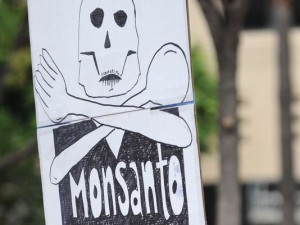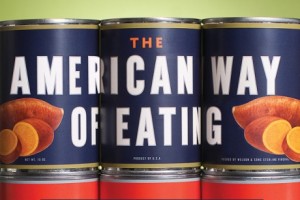In 2004, Monsanto ended its field trials of Roundup-Ready Wheat, the proprietary, genetically-altered version of the grain that would allow it to be sprayed with the company’s Roundup weed killer and survive. The public was too uncomfortable with the prospect of eating techno-genetic food. Last week, The New York Times reported that Roundup-Ready Wheat returned from the dead to kick U.S. exports in the shin.
genetically-altered version of the grain that would allow it to be sprayed with the company’s Roundup weed killer and survive. The public was too uncomfortable with the prospect of eating techno-genetic food. Last week, The New York Times reported that Roundup-Ready Wheat returned from the dead to kick U.S. exports in the shin.
The U.S. is the world’s largest exporter of wheat, but last week Japan and South Korea banned the importation of the grain – and the E.U. recommended that all 27 of its nations increase testing – because the Roundup-Ready strain was found growing in an Oregon Field. According to Monsanto’s web site, tests of the grain were never conducted in that field. This brings up a few points worth emphasizing:
- The very fear American farmers have about Monsanto’s techno-genetic seeds – that natural crops cannot be protected from contamination by them – is true even in the case of a controlled field test conducted by one of the biggest and most advanced companies in the world.
- When contamination of those natural crops occur, ownership of those crops automatically transfers to Monsanto, meaning that farmers must then pay Monsanto or have their businesses destroyed. This is enshrined in law by the Plant Variety Protection Act and a recent decision by the John Roberts Supreme Court.
- Wheat can, according to Monsanto, linger in the ground for up to two years before germinating.
- The company’s GM wheat apparently lingered in the ground for nine years before germinating.
- Wheat exports contribute, according to U.S. Wheat Associates, an industry marketing firm, account for between $961 million and $1.8 billion of our GDP. South Korea imports 2.5 million tons. The E.U. imports over 1 million.
- Countries with large numbers of educated individuals do not want to import GM food.
- The inability to control the Roundup-Ready wheat – an inherent component of its design – threatens the U.S. economy and our trustworthiness as world merchants.
And on a final note, Monsanto’s new strategy to introduce its proprietary, fundamental foodstuff into the global food chain is to start selling it to India.


